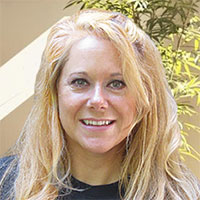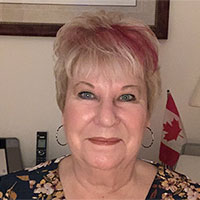The Significance of Relying on Your Intuition to Prevent Gaslighting
 Gaslighting represents a highly damaging element of a toxic relationship. It fundamentally encompasses any type of “reality distortion” or “mind games” aimed at disorienting or manipulating the target.
Gaslighting represents a highly damaging element of a toxic relationship. It fundamentally encompasses any type of “reality distortion” or “mind games” aimed at disorienting or manipulating the target.
This tactic is employed to assert dominance and control within the relationship by causing the victim to question their own reality. It is most commonly observed in romantic entanglements but can manifest in various social dynamics, including friendships, professional environments, and among neighbors.
Sometimes it is overt, occurring right in front of the victim, but more frequently, it operates covertly, leaving individuals unaware of the gaslighting or even that they are experiencing it.
The term “gaslighting” stems from the 1938 stage play Gas Light and its film adaptations from 1940 and 1944. The plot revolves around a husband’s efforts to systematically unsettle his wife by continually dimming the gas lights in their residence, only to deny the act when she inquires about it. Gradually, he manipulates her into believing that she is hallucinating and loses her grip on reality.
It is a prevalent manipulation strategy wielded by dictators, con artists, abusers, sociopaths, narcissists, and cult leaders. Their methods are such that the victim seldom realizes the extent of their brainwashing.
Initially, the victim may suspect that they are not merely imagining scenarios but that someone is intentionally deceiving them. They may even have an inkling of who that individual might be. Nonetheless, gaslighting aims to instill doubt in these logical thoughts and supplant them with the notion that something is fundamentally flawed within the victim, whether mentally, spiritually, emotionally, or physically. The most troubling aspect, in my view, is that it induces self-doubt regarding your own instincts.
Gaslighting tends to gradually erode your sense of self until you come to the realization that you’re merely a shadow of your former self ~ Aletheia Luna
For instance, a woman might stumble upon a note addressed to her boyfriend from another woman, expressing enjoyment of their weekend together. She recalls that her boyfriend was actually away during that time. Yet, when she confronts him, he insists she has the dates wrong, asserting he was at home that weekend. Furthermore, the note was directed not to him, but to his best friend, who inadvertently left it in his car after a night out. He also expresses disbelief that his girlfriend doesn’t trust him! Perhaps it’s because she is, in fact, the one engaged in infidelity. This serves as a prime illustration of gaslighting.
If an employer critiques your performance despite being responsible for the failings themselves, only to later deny having approved it previously and persistently nitpick your work to undermine you, that may also indicate gaslighting. Similarly, if a neighbor with whom you’ve had conflicts claims to have witnessed your child damaging your tires, when in reality, that neighbor is the culprit, that’s gaslighting.
In scenarios where police interrogate someone and falsely assert that their DNA and fingerprints are all over the crime scene, even if they are not, that exemplifies gaslighting as well. There have been instances where individuals, after undergoing prolonged questioning, have admitted to crimes they did not commit based on such pressures. They convince themselves that if the police assert they were present, there must be truth in it. The police might even lead them to believe they did commit the crime and simply can’t recall it.
Within romantic relationships, gaslighting often unfolds gradually over an extended timeframe. Initially, the gaslighter enchants the victim with praise and affectionate words. Then, incrementally, the victim is conditioned to feel unattractive, unproductive, untidy, or foolish — the polar opposite of what they were initially told to build trust in the abuser.
At the outset, the gaslighter proclaims the victim to be the best thing that ever happened to them, only to later assert that they could find someone better without them. They might reflect on how alluring previous partners were and make adverse comparisons.
If you modify your actions due to fear of your partner’s reaction, you are in an abusive situation ~ Sandra Horley
Here are further instances of gaslighting encountered in my professional experience with clients:
✵ Complimenting a woman with long hair on its beauty, then months later claiming it appears damaged because of her poor brushing technique, despite the partner being bald and lacking knowledge of how to care for long hair.
✵ Telling a partner they are not as sexually capable as previous partners.
✵ Praising a partner for their beautiful body, only to later criticize them for being overweight or not fitting the abuser’s ideal body type. Numerous clients have shared how their abuser praised their physical appearance, only to later lament a weight gain, despite the scale showing otherwise.
✵ Initially declaring a partner to be hilariously funny and laughing at their jokes throughout the early relationship, only to later refuse to smile at anything they say.
These manipulative strategies are crafted to provoke the victim to question their own emotions, instincts, and sanity while delivering power, control, and superiority to the abusive partner. The most effective means of averting gaslighting is to trust your own instincts and listen to your gut, regardless of what anyone else asserts. If your intuition signals that something is awry, that you are being manipulated, or that the other person is being dishonest, you are likely accurate.
Some individuals will brand you as vengeful, unforgiving, or even malicious for not permitting them to hurt you repeatedly ~ Wayne Gerard Trotman
Methods to Enhance Your Gaslighting Intuition
To enhance your ability to trust your instincts and sharpen your intuition when facing gaslighting attempts, particularly when confusion clouds your inner awareness, consider implementing the following strategies:
Pause and breathe: Gaslighting flourishes on emotional turbulence, impulsiveness, and confusion. When something feels amiss, pause, take a deep breath, and let your body ground you in the now. If feasible, spend a few minutes to genuinely process their words.
Notice bodily signals: Do you feel a tightening in your stomach? Is your heart racing? Is there a flush in your skin? Your body instinctively reacts to deceit and manipulation before your mind does. Learn to interpret these signals.
Be aware of emotional upheaval: Gaslighting frequently leads to sudden feelings of shame, confusion, or guilt without clear justification. This abrupt shift is an indication that someone is tampering with your reality. Ask yourself: “Does this resonate with me?” Even if someone sounds convincing, check within. Does their narrative align with your experiences?
Avoid arguing: You need not defend your truth. You have nothing to validate to toxic individuals in your life. Sometimes, the most powerful action is to calmly walk away and trust your internal knowledge.
Document your experiences: Keep a journal. Write or record a voice note about the interaction promptly. What was stated? How did it impact your feelings? Reviewing this later can aid in recognizing patterns and instilling trust in your original feelings.
Seek patterns and consistency: Isolated misunderstandings are common. However, when someone persistently distorts words, denies facts, or blames you for actions you did not partake in, your intuition is not misleading you—something is amiss.
Establish a reality anchor: Connect with a trusted friend, therapist, or spiritual advisor. Share the event and its impact on you. An unbiased perspective can reinforce what your intuition already acknowledges and assure you that you are not unraveling.
Validate your inner knowledge: Implement a daily affirmation regimen with statements like: “I trust my intuition. I honor my truth. My feelings are valid.” Fortifying your self-belief in this manner enables you to stand stronger during challenges.
Seek guidance from your angels, guides, or ancestors for protection and clarity: You are never alone. When uncertainty arises, call upon your spiritual support team. Through prayer, meditation, or rituals, their loving presence can help clear the haze and reinforce your inner truth.
Consult a psychic: When your intuition feels murky, a reliable psychic can assist in recalibrating your connection to your inner self. A nuanced reading with a skilled psychic or medium can help you reaffirm what your spirit knows deeply.
Gaslighting is neither love nor care. It embodies emotional and psychological abuse. If an individual consistently causes you to doubt your value or sanity, the fault does not lie with you—it stems from their toxic manipulation and mind control. Trust your instincts to safeguard your well-being.
|
Satya resides in Northern California and is a natural Clairvoyant, Empath, Conduit, educator, author, animal enthusiast, healer, Reiki Master, and an experienced yoga instructor. She has offered invaluable psychic guidance to Hollywood celebrities, athletes, and everyone in between. With a multi-faceted intuitive approach and numerous unique abilities at her disposal, she grants access to the past while providing a pathway to a more fulfilling future. Her long-distance energy healing benefits both individuals and animals. She quickly identifies karmic links from previous lives that influence current circumstances, enabling clients to progress swiftly. For precise solutions to nearly any pressing concern, you can reach Satya at PsychicAccess.com. |
Gaslighting represents a type of psychological manipulation that leads individuals to question their own emotions, thoughts, and perceptions. It is a strategy frequently employed by those seeking to exert control over others. Gaslighting can manifest in diverse relationships, including romantic, friendships, and even workplace interactions. To protect ourselves from falling prey to such manipulation, we must learn to trust our inherent instincts.
Trusting your instincts means relying on your intuitive sense or inner voice when making judgments or decisions. It’s that deep-seated feeling indicating that something feels off or that a situation is awry. Relying on your instincts is essential in evading gaslighting, as it helps sustain a clear sense of self and reality.
Gaslighting usually initiates subtly, with the manipulator prompting you to second-guess your memories or perceptions. They may cause you to doubt your recall of conversations or events, leading you to question your sanity. Over time, this can erode self-confidence and create dependency on the gaslighter for validation and approval.
Believing in your instincts can aid in detecting gaslighting signs early. If something feels amiss or contradicts your own experiences, it’s vital to honor that feeling. Your instincts arise from your subconscious recognizing subtle cues and inconsistencies that your conscious mind might overlook.
When you trust your instincts, you’re less capable of being influenced by the manipulator’s tactics. Gaslighters aim to instill doubt in your own judgment, but by trusting your gut, you can maintain self-assurance and resist their endeavors to control your thoughts and feelings.
Trusting your instincts also empowers you to establish boundaries and express your own needs and desires. Gaslighters often aim to make you feel that your needs are trivial or that you are being unreasonable. By trusting your gut, you can discern when your boundaries are being infringed upon and assert yourself.
It’s important to acknowledge that trusting your instincts doesn’t entail disregarding all feedback or criticism. It requires discernment, recognizing when someone’s intentions may be manipulative or harmful. While remaining open to constructive criticism and alternative viewpoints, it’s also imperative to trust your instincts when something feels amiss.
To foster the ability to trust your instincts, enhancing self-awareness and self-confidence is vital. Engage in practices such as mindfulness, meditation, and self-reflection. Connecting with your true self and understanding your values and beliefs can solidify your capacity to trust your instincts.
In summary, trusting your gut is crucial to avoiding gaslighting and preserving a sense of self. Gaslighters aim to distort and control others by instilling doubt in their thoughts and perceptions. By trusting your instincts, you can promptly identify gaslighting signs, set boundaries, and express your needs. Building self-awareness and confidence is key to developing trust in your intuition. Remember, your gut instinct is a powerful ally in shielding you from manipulation and maintaining your reality. Continue reading















